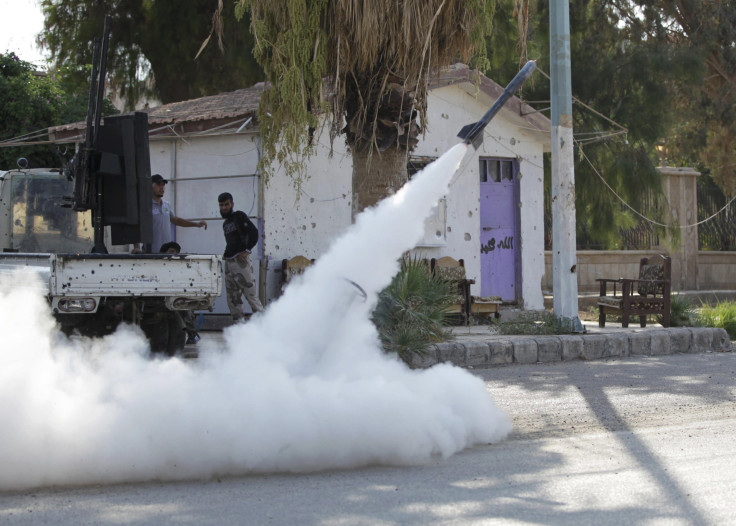Obama Declares Syria A National Security Threat; Pentagon Begins To Identify Targets For An Attack

President Barack Obama, on Thursday, declared Syria a national security threat that warrants a military response, and ordered the Pentagon to create a long list of potential targets in Syria, after intelligence reports suggested that Syrian President Bashar Assad’s government was deploying troops and equipment used to launch chemical weapons attacks.
Obama’s move is also seen as a warning to hostile governments in Iran and North Korea, and political militant groups such as Hezbollah, and as a measure to safeguard the U.S.’s credibility on the world platform. And, in declaring Syria a national security threat, the president also appeared to be attempting to shift public opinion in the country after a Reuters/Ipsos poll, on Tuesday, showed that less than 20 percent of Americans supported a military strike in Syria.
“Iran is hoping you look the other way,” Secretary of State John Kerry told the Senate Foreign Relations Committee on Thursday, according to an Associated Press report. “Our inaction would surely give them a permission slip for them to at least misinterpret our intention, if not to put it to the test. Hezbollah is hoping that isolationism will prevail. North Korea is hoping that ambivalence carries the day.”
“They are all listening for our silence,” Kerry said.
Defense Secretary Chuck Hagel pointed to the possibility that the Syrian government’s chemical weapons stockpile may fall into the hands of its Lebanese militant ally -- Hezbollah, or Syrian militant rebel groups, which include the al Qaeda-linked al Nusra group, which is blacklisted by the U.S. as a terrorist organization.
“We cannot afford for Hezbollah or any terrorist groups determined to strike the United States to have incentives to acquire or use these chemical weapons,” Hagel told the House Foreign Affairs Committee.
The U.S. aims to target Syrian military units that store and deploy chemical weapons, the headquarters ordering the attacks, as well as Syrian rockets and artillery, the New York Times reported on Thursday, citing military officials.
The Obama administration is considering using U.S. and French aircraft to carry out aerial strikes, supplemented by cruise missiles launched by ships, and is also trying to involve NATO troops, the report added.
However, Congress remains sharply divided on the scale of the proposed strike, with most Congressional members calling for a limited strike in terms of duration and nature of the attack, while some Republican members argue that such plans will not undermine the Syrian government’s stability.
“They are being pulled in two different directions,” a senior foreign official involved in the discussions, told the New York Times, on Thursday. “The worst outcome would be to come out of this bruising battle with Congress and conduct a military action that made little difference.”
© Copyright IBTimes 2025. All rights reserved.






















